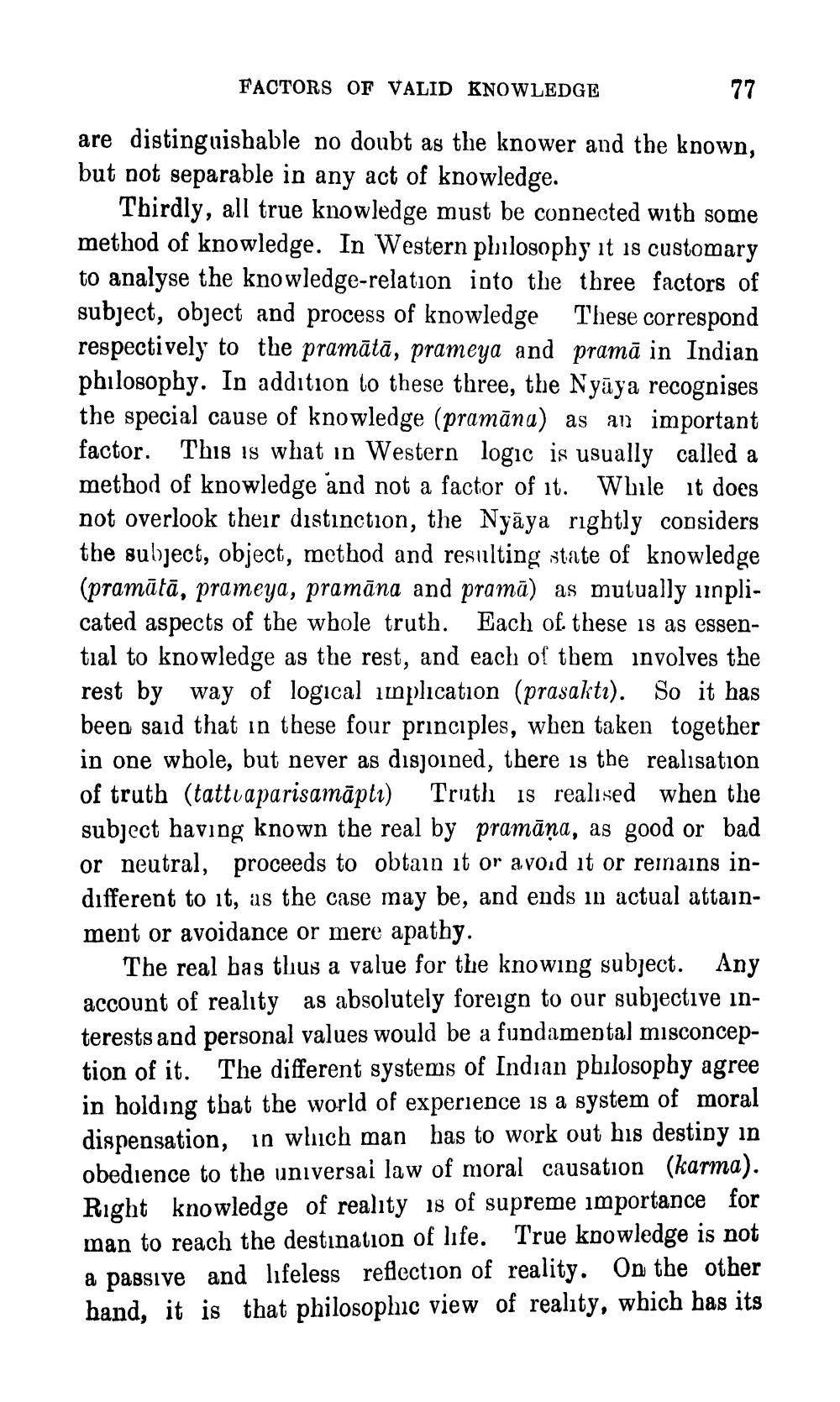________________
FACTORS OF VALID KNOWLEDGE
77
are distinguishable no doubt as the knower and the known, but not separable in any act of knowledge.
Thirdly, all true knowledge must be connected with some method of knowledge. In Western philosophy it is customary to analyse the knowledge-relation into the three factors of subject, object and process of knowledge These correspond respectively to the pramātā, prameya and prama in Indian philosophy. In addition to these three, the Nyaya recognises the special cause of knowledge (pramāna) as an important factor. This is what in Western logic is usually called a method of knowledge and not a factor of it. While it does not overlook their distinction, the Nyaya rightly considers the subject, object, method and resulting state of knowledge (pramātā, prameya, pramāna and prama) as mutually unplicated aspects of the whole truth. Each of these is as essential to knowledge as the rest, and each of them involves the rest by way of logical implication (prasakti). So it has been said that in these four principles, when taken together in one whole, but never as disjoined, there is the realisation of truth (tattiaparisamāpti) Truth is realised when the subject having known the real by pramāņa, as good or bad or neutral, proceeds to obtain it or avoid it or remains indifferent to it, as the case may be, and ends in actual attainment or avoidance or mere apathy.
The real has thus a value for the knowing subject. Any account of reality as absolutely foreign to our subjective interests and personal values would be a fundamental misconception of it. The different systems of Indian philosophy agree in holding that the world of experience is a system of moral dispensation, in which man has to work out his destiny in obedience to the universal law of moral causation (karma). Right knowledge of reality is of supreme importance for man to reach the destination of life. True knowledge is not a passive and lifeless reflection of reality. On the other hand, it is that philosophic view of reality, which has its




